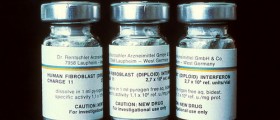
Blood Donation
Blood donation is a voluntary donation of your blood. It won’t be harmful for you, and it may save lives of several people. Donating blood may be good for your health too, because it may increase the synthesis of new blood cells and blood circulation.
The donated blood may be used as it is, for transfusions, or fractioned to components and then used. Every minute of every single day, someone needs the blood. Depressing fact is that just 3% of American population actually donates blood, although more than 60% could do it without any consequences for their health.
Blood Donations Restrictions
Certain medical conditions and habits could disable people to donate their blood or cause restriction of blood donation for some time. Some of those disorders and conditions are:
People that were exposed to hepatitis should be donating blood for at least 12 months. Malaria – if a person suffered from malaria he/she should not give blood for 3 years. After the visit to malaria affected area the restriction is limited to a year. Recovered mononucleosis patients don’t have any restrictions. If the mononucleosis was associated with hepatitis, there is a restriction to one year. Diabetes – if the person just started with insulin therapy he/she should wait for 3 weeks and then might donate the blood. Hypertension – if a patient doesn’t have high blood pressure he/she can safely donate the blood. Hepatitis B vaccination – 1 week after the vaccination and 1year after the exposure to hepatitis B. Small pox vaccination – if there are no symptoms there is no restriction. Surgical procedures and tattoo – one year restriction period from donating the blood. Soriatane (psoriasis medication) – 3 years of restriction for donating the blood. Pregnancy – while pregnant you shouldn’t donate the blood. After the childbirth or miscarriage, wait for 6 weeks and then you may give blood donation.Other blood donation restrictions include HIV/AIDS patients, people at risk of being infected with HIV/AIDS, blood infections and blood disorders. People intoxicated with alcohol should never give the blood at that state.
Minor symptoms of cold or flu shouldn’t affect the blood donation.
Asthma patients without the asthma symptoms at the time of the donation may donate their blood also.
After the antrax vaccionation, if you don’t experience any symptoms, you are free to give your blood donation.
People using acutane, Proscar or Propecia medications should not give blood for 4 weeks. If you got a piercing somewhere on the body and suspect that the needle wasn’t sterile, don’t donate the blood for one year.
Cancer survivors are usually recommended to wait for 5 years before starting to donate the blood. Basal and squamous skin cancer survivors don’t have this restriction.

















Your thoughts on this
Loading...